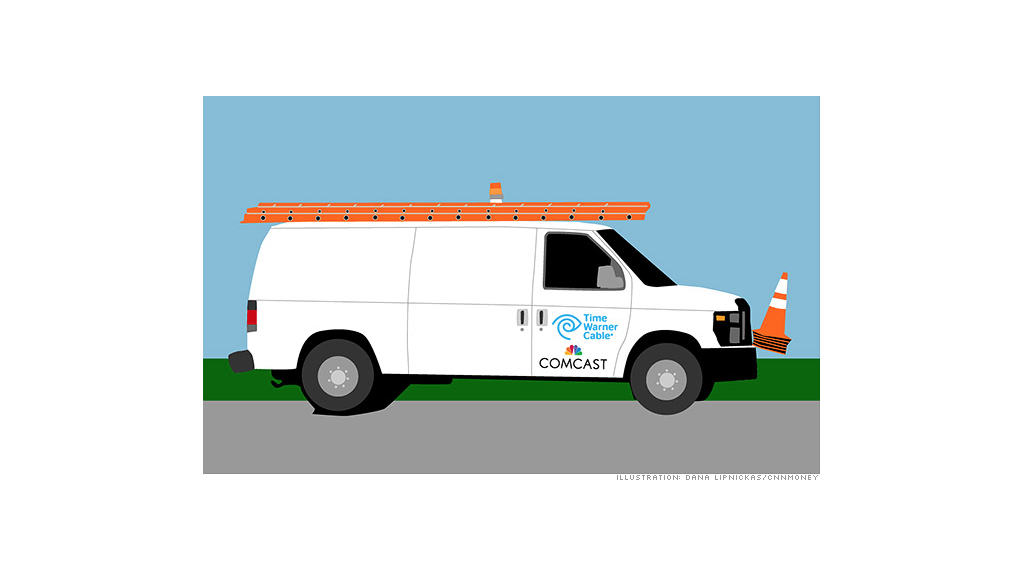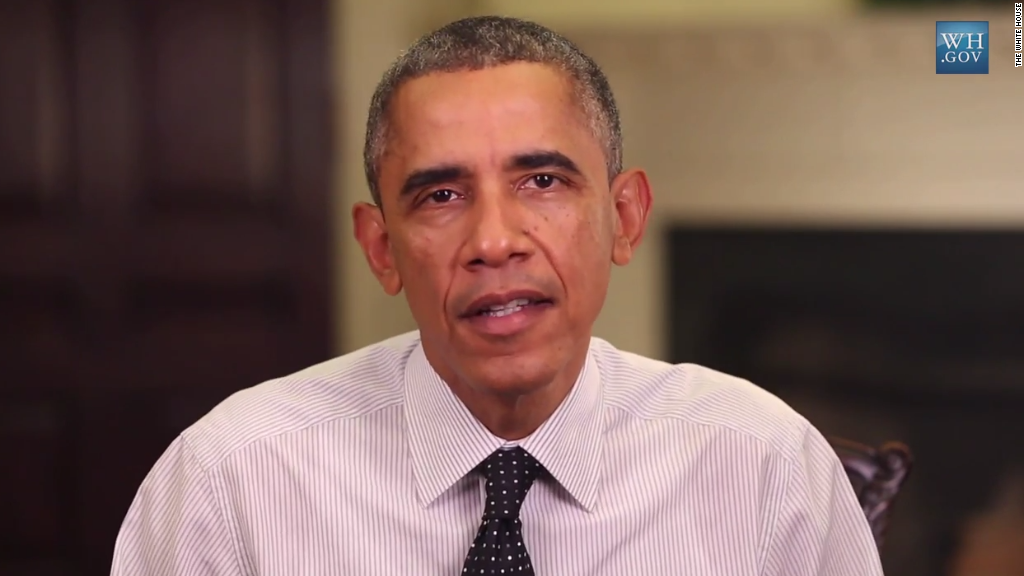
President Obama says the Internet should be more heavily regulated to ensure it stays open and independent.
In a public statement, Obama took a firm stand on a thorny issue: whether Internet providers can charge higher fees to place certain websites on Internet "fast lanes."
FCC Chairman Tom Wheeler has voiced his support for fast lanes, but the president urged Wheeler to change his mind.
Obama's approach is to look at the Internet like a utility, and to treat companies like AT&T (T) and Comcast (CMCSA) the same as your local power company. That would forbid broadband providers from blocking legal websites or keep websites in a "slow lane" until they pay up an extra fee.
The FCC had proposed earlier this year that Amazon could pay Comcast to speed up service for its customers. Opponents fear that a smaller Amazon rival would not be able to compete.
"We cannot allow Internet service providers to restrict the best access or to pick winners and losers in the online marketplace for services and ideas," Obama said. "Companies who connect you to the world have special obligations not to exploit the monopoly they enjoy over access in and out of your home or business."

It's up to the FCC's commissioners to draft the rules. They could adopt Obama's take on the issue. But that could prove difficult. Internet providers don't want strict regulation that ties their hands, and they have successfully resisted earlier attempts to reclassify broadband as a utility in the past.
Related: Apple finally lets iPhone defectors get texts again
Also, by asking that Internet be classified as a utility, Obama is asking the FCC to take what some view as the nuclear option. It keeps the Internet open and free -- but only by adding regulation that many view as unnecessary.
Cable and telecom companies say this kind of regulation will make network upgrades slower and raise prices. Wheeler, who will ultimately decide on the new rules, is suggesting only partially looking at the Internet as a utility.
"Like the President, I believe that the Internet must remain an open platform for free expression," Wheeler said in a statement Monday. ""We cannot allow broadband networks to cut special deals to prioritize Internet traffic and harm consumers, competition and innovation."

